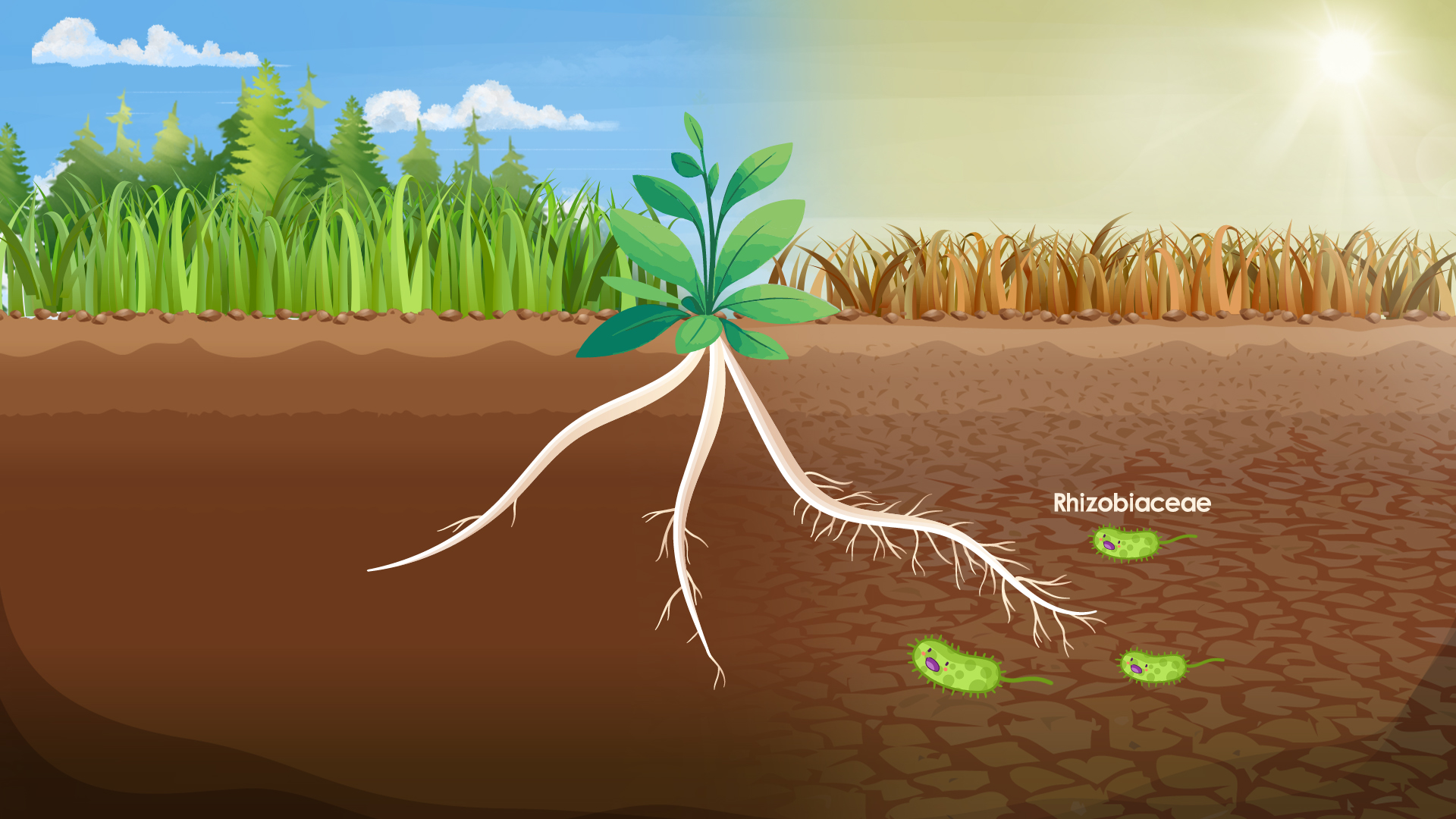Drought is one of the most severe abiotic stresses faced by terrestrial plants and agricultural ecosystems under global climate change. Drought stress is also a significant factor contributing to the degradation of soil microbial ecosystems and the decline of the beneficial functions of root-associated microbiomes.
Plants can recruit beneficial microorganisms under various stress conditions to alleviate survival pressures, which is considered an important environmental adaptation strategy beyond traditional endogenous stress signaling. However, how genetic signaling in plants under drought conditions participates in regulating the dynamic assembly of root microbiomes remains poorly understood.

Assistant Professor Yi Song’s research team from the Department of Biology, School of Life Sciences at the Southern University of Science and Technology (SUSTech) has uncovered a new mechanism in which root hair developmental regulators orchestrate drought-induced root microbiome changes and interact with beneficial microbes belonging to Rhizobiaceae.
Their paper, titled “Root hair developmental regulators orchestrate drought triggered microbiome changes and the interaction with beneficial Rhizobiaceae”, has been published in the journal Nature Communications.
In this work, the researchers utilized Arabidopsis root hair development mutants (with altered root hair density) and performed sequencing of root-associated microbiomes. They found that root hair developmental mutants significantly affected the composition and assembly patterns of the root microbiome. Notably, the gl2 mutant (with increased root hair density) induced deterministic assembly of root microbiomes under drought and specifically enriched for microbes belonging to Rhizobiaceae.
Further investigations through high-throughput isolation and cultivation of root commensal bacteria, as well as co-colonization experiments in multiple systems (PEG plates and soil systems), confirmed that the Rhizobiaceae strains influenced by gl2 could significantly enhance the drought adaptability of plants and elucidated the induced plant transcriptional adaptation mechanisms. Additionally, key functional genes in the arginine and proline metabolic pathways of microorganisms, such as the ocd gene encoding ornithine cyclodeaminase, were significantly enriched in the root microbiomes of gl2 mutants under drought conditions. Bacterial genetic knockout further indicated that this gene not only significantly affected the growth rate and the oxidative stress adaptability of these Rhizobiaceae strains, but also markedly diminished their protective effects against drought stress in plants.
This study employed multi-omics approaches to confirm the role of host genetic effects in the plant-microbe interactions dynamics under drought stress. Furthermore, it highlighted the abiotic stress protection mechanisms mediated by Rhizobiaceae, expanding the understanding of interactions between non-leguminous plants and rhizobia under adverse conditions.
Dr. Zhenghong Wang and graduate student Zewen Li from Yi Song’s lab are the co-first authors of this paper. Other contributors to this work include Researchers Yujie Zhang, Jingye Liao, Kaixiang Guan, Jingxuan Zhai, and postdoctoral fellow Xianli Tang. Chair Professor Hongwei Guo and Professor Tao Dong from SUSTech, along with Researcher Xiang Liu from Lanzhou University, provided assistance and guidance. SUSTech is the sole corresponding institution of the paper.
Paper link: https://www.nature.com/articles/s41467-024-54417-5
To read all stories about SUSTech science, subscribe to the monthly SUSTech Newsletter.
Proofread ByAdrian Cremin, Yingying XIA
Photo BySchool of Life Sciences